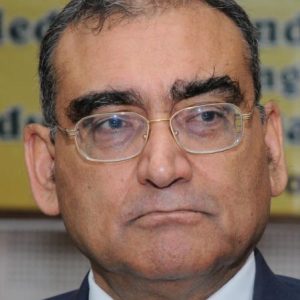This year, Diwali, the festival of light, will be celebrated on October 31, 2024.
 On this occasion, I, on behalf of Ibaadatkhana—a global organization promoting interfaith harmony, of which I am the patron—appeal to all non-Hindus worldwide to celebrate Diwali.
On this occasion, I, on behalf of Ibaadatkhana—a global organization promoting interfaith harmony, of which I am the patron—appeal to all non-Hindus worldwide to celebrate Diwali.
I should mention that, for the last 25–30 years, I have observed one day of roza (fasting) during the holy month of Ramadan (usually on the last Friday). Although I am an atheist, I respect all religions and strongly support freedom of religion and interfaith harmony.
My observance of roza is a symbol of respect for my Muslim brothers and sisters, and each year, I encourage non-Muslims worldwide to do the same. Similarly, I urge non-Hindus to observe a day of fasting during Navratri.
 In the past, Hindus participated in Eid and Muharram, and Muslims celebrated Holi and Diwali. Even Mughal emperors like Akbar, Jehangir, Shah Jahan, and later rulers, as well as the Nawabs of various Indian kingdoms, would celebrate Holi and Diwali.
In the past, Hindus participated in Eid and Muharram, and Muslims celebrated Holi and Diwali. Even Mughal emperors like Akbar, Jehangir, Shah Jahan, and later rulers, as well as the Nawabs of various Indian kingdoms, would celebrate Holi and Diwali.
Diwali, known as Jashn-e-Chiraghaan, was celebrated enthusiastically by Muslim rulers, as illustrated in various paintings of the time depicting Muslim rulers and their wives celebrating Diwali.
After the Great Mutiny of 1857, the British began a divisive policy of “divide and rule,” which fostered communal hatred and largely ended these shared celebrations.
 It is time to revive and renew this tradition of celebrating festivals of all religions together. I am confident that non-Hindus worldwide will heed this appeal from Ibaadatkhana and join in celebrating Diwali on October 31 this year.
It is time to revive and renew this tradition of celebrating festivals of all religions together. I am confident that non-Hindus worldwide will heed this appeal from Ibaadatkhana and join in celebrating Diwali on October 31 this year.
How you choose to celebrate Diwali is up to you. One suggestion is to light a diya (an earthen lamp) in front of your home (or another light source if diyas are unavailable) and share sweets with your Hindu friends.
I especially appeal to Muslims and Christians in India, Pakistan, and Bangladesh to celebrate Diwali by lighting a single lamp (diya) and placing it outside your door.
You may share a photo of your diya with me at justicekatju@gmail.com, along with your name, location, and other details, which I will post on my Facebook page with your permission.

Until 1857, there was no significant communal divide in India. Hindus and Muslims lived together as brothers and sisters, participating in each other’s festivals. Muslim rulers like the Mughals (with the exception of Aurangzeb), the Nawabs of Avadh and Murshidabad, and others participated in Holi and Diwali and organized Ramlilas, as seen in many paintings of that era.
In 1857, the Great Mutiny saw Hindus and Muslims unite against the British. After quelling the rebellion, the British decided that the only way to maintain control over India was to instigate division, encouraging animosity between Hindus and Muslims. Letters from the Secretary of State for India to the British Viceroy implemented these policies.

The communal poison was injected into our society year after year, first by the British and, after 1947, by those who politically benefited from fostering communal tensions.
When poison enters our bodies, doctors administer antidotes to neutralize it. Lighting a lamp on Diwali, celebrated by all communities, is one such antidote to communal division.
Though a small step, it moves us in the right direction. We must unite and resolutely stand against communal forces; this is one way to do so. ![]()
Disclaimer : PunjabTodayNews.com and other platforms of the Punjab Today group strive to include views and opinions from across the entire spectrum, but by no means do we agree with everything we publish. Our efforts and editorial choices consistently underscore our authors’ right to the freedom of speech. However, it should be clear to all readers that individual authors are responsible for the information, ideas or opinions in their articles, and very often, these do not reflect the views of PunjabTodayNews.com or other platforms of the group. Punjab Today does not assume any responsibility or liability for the views of authors whose work appears here.
Punjab Today believes in serious, engaging, narrative journalism at a time when mainstream media houses seem to have given up on long-form writing and news television has blurred or altogether erased the lines between news and slapstick entertainment. We at Punjab Today believe that readers such as yourself appreciate cerebral journalism, and would like you to hold us against the best international industry standards. Brickbats are welcome even more than bouquets, though an occasional pat on the back is always encouraging. Good journalism can be a lifeline in these uncertain times worldwide. You can support us in myriad ways. To begin with, by spreading word about us and forwarding this reportage. Stay engaged.
— Team PT

